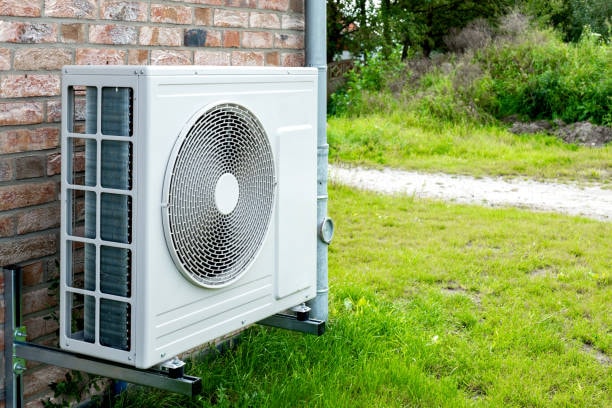
Heat pumps are machines that use less energy to cool or heat the inside of a building. In some cases, a heat pump functions by moving around heat from open air or underground to inside the house, but a conventional heating system only produces heat. Since heat pumps are efficient, they are popular in many homes and offices. People are still curious about the amount of energy consumption and specifically how much electricity does a heat pump use. and their overall energy usage, if they can be trusted to save energy at home. Here, we are going to review how much heat pump energy consumption affects overall electricity used and some things that can change their use and outline the approach to calculating power consumption during different periods. and some things that can change their use and outline the approach to calculating power consumption during different periods.
A heat pump’s electricity consumption is affected by its heat pump type, size, how efficient it is, the temperature in the area, how well the building is insulated and the set indoor temperature. A house with better insulation in a moderate climate will need less heating power from the heat pump than one that is not as well insulated in a harsh climate, especially when considering the efficiency rating . You may find your heat pump electricity usage increases more power in both cold and hot seasons since it needs to work extra to ensure the set temperature is maintained. Using electricity depends greatly on the heat pump’s coefficient of performance (COP). An increased COP makes the unit more efficient at using electricity for heating or cooling. To ensure that the energy used is optimized in a heat pump, you should understand these variables.
How Do Heat Pumps Work?
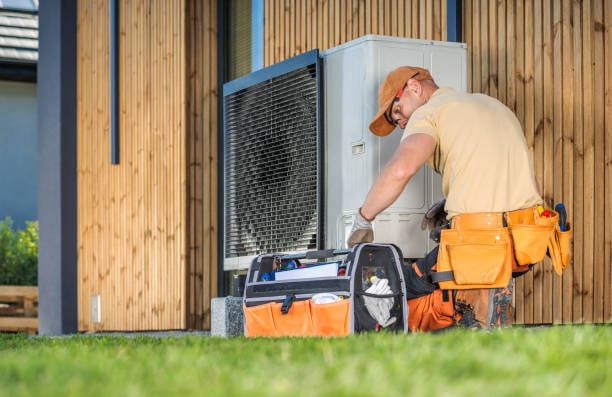
Heat pumps move heat from one area to another. In the heating mode during heating season, air source heat pumps take heat from outside air (even if it’s cold). or from below the ground and sends it into your home to warm it, especially in colder climates . (even if it’s cold) or from below the ground and sends it into your home to warm it. In the winter, the heat pump is designed to absorb the heat indoors and send it outdoors which works the same as an air conditioners does in the summer. This is achieved by bringing together a compressor, expansion valve, evaporators and condensers as part of a refrigeration system, significantly enhancing the heating efficiency . Heat pumps work efficiently since they do not generate heat on their own. Instead, they collect heat energy as thermal energy from a heat source and remove it from the air surrounding them., then send it elsewhere which significantly improves their energy efficiency.
Compared to furnaces and electric heaters, heat pumps run more efficiently because they are energy efficient and move or transfer heat instead of creating it. In fact, a heat pump gives you more heat than it uses and as a result, is both cost-saving and environmentally friendly. The process is nearly the same as in a refrigerator or air conditioners , except it works backwards when used to heat instead of cool. Today’s heat pumps may also include smart thermostats and variable-speed compressors, helping them deliver heat or cool air more efficiently and ensure your personal comfort.
Electricity Consumption of a Heat Pump
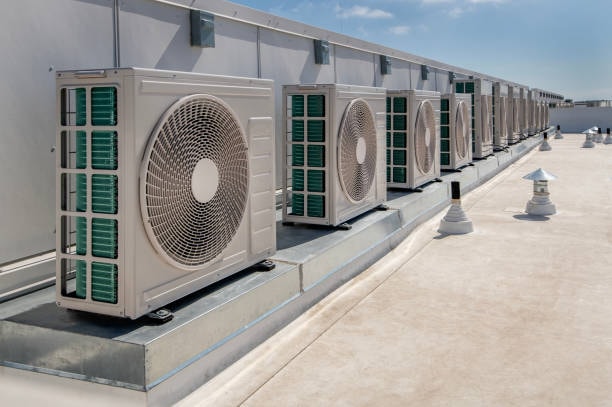
A heat pump’s electricity consumption is managed by factors like the type of heat pump, the system’s energy efficiency and the kind of climate. Usually, the performance of heat pumps is judged by their heat pump’s efficiency rating., specificall coefficient of performance (COP). The COP tells you how many units of heat are created by a heat pump for each unit of electricity that it uses, which directly relates to its overall energy use . The illustration describes that if a heat pump has a COP of 3, it means that you get 3 units of heat from only one unit of energy.
A heat pump uses electrical energy from electricity to run the compressor, fan and various components, but it generates more energy and more energy efficient power than it consumes, similar to other cooling equipment, which leads to lower heat pump electricity usage . . The reason is that their method of heat exchange works very well. If you use a heat pump, it can produce 3-5 kWh of heating or cooling energy for each kWh of electricity it is supplied with, which directly affects its cooling efficiency .
Factors Affecting the Electricity Usage of a Heat Pump
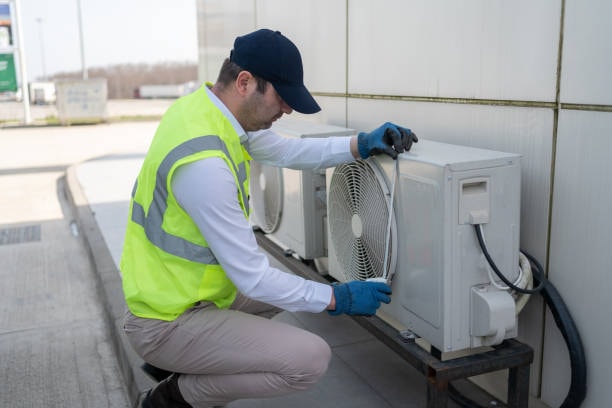
A variety of details influence the amount of power a heat pump must use. These include, especially in the case of ducted systems, where the type of heat pump as part of the hvac systems is crucial for transferring heat :
- When sizing a heat pump, its size is crucial since it affects the amount of electricity required. If you choose a big isometric warm pump to cover a large area, it may require more power than a small system serving a home. Properly matched heat pumps are more efficient and the system operates only for as long as the designer requires.
- How much outdoor heat contributes a lot to the energy use of a heat pump. In freezing weather, it becomes hard for heat pumps to gather heat, so they end up using higher levels of electricity. Since the climate is warm, the system requires less electricity for cooling, thus using less energy.
- The amount of electricity a heat pump uses depends partially on the energy efficiency of the building. If a house is well-insulated, the heat pump can be more efficient and we will use less electricity. If the cotton wool in your home is lacking, the heat pump may have to use much electricity to keep your house warm which increases your energy costs.
- Depending on the season, heat pump users need more electricity for heating or cooling. Because of the seasons changing, heat pump electrical use will rise in winter and in the summer.
- If the heat pump is efficient, it will boost its overall performance. Modern heat pumps often have improved COPs that allow them to give more heat or cool air with less power. Lesser-efficient models or machines need more power because they have low COP ratings.
Estimating the Electricity Usage of a Heat Pump
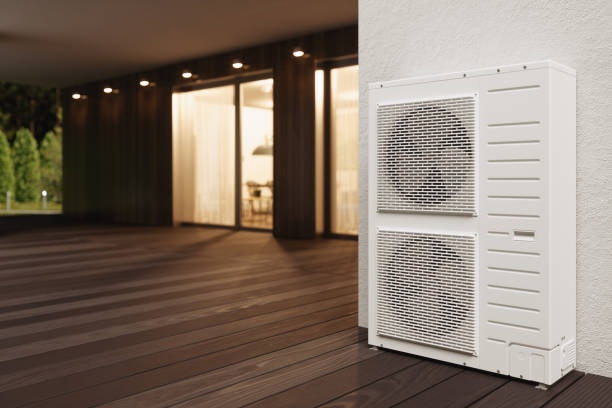
To know how much electricity your heat pump will use, you need to factor in its energy rating and consider how often you need heating or cooling in your home, as well as the electricity cost involved. . This is the straightforward way to learn how much power your heat pump requires, considering the outdoor temperature :
- On the specification from the manufacturer, you will find the kilowatts (kW) or watts of power your heat pump requires. In general, an air-source heat pump consumes power between 1.5kW and 3 kW in an hour, with the exact amount depending on its size and efficiency.
- Assume the daily usage of your heat pump to be enough to provide the heating or cooling needed for your system. If your heat pump helps for 6 hours daily, then you calculate the daily amount by multiplying the power being used by 6.
- Multiply your power draw times the hours it is in use during the day to calculate your daily usage. After finding your electricity usage in kilowatt-hours, multiply it by the total days in the month to get your monthly usage.
Conclusion
The usage of electricity by a heat pump can be affected by the unit’s size; outside temperatures; the heat pump’s rating; and how much the building is insulated, as well as considering the electricity rate for accurate calculations . Though while heat pumps rely on electricity to meet heat demand , they can help reduce your carbon footprint significantly., they still use less energy than most heating systems because they are energy efficient and can also cool down and provide both heating and cooling at the same time. By being aware of every contributing factor, homeowners may work out how much electricity their heat pump will use and adjust their heating or cooling practices as needed, potentially lowering their electricity bills .
Remember to pay attention to how your home’s heat pump functions during the various seasons. Most of the time, heat pumps use less energy for heating and in cooling mode, and can also efficiently provide domestic hot water. to cool or heat your home and maintain indoor temperatures. , because this happens most efficiently during moderate seasons, particularly in the cooling season . When it is especially hot or in colder climates, the heat pump might use more power to maintain a set temperature. If you use a smart thermostat, improve your insulation and give the system regular care, efficiency will increase. Living eco-consciously and upgrading parts of the home carefully allows people to enjoy consistent temperatures and spend less money yearly.
